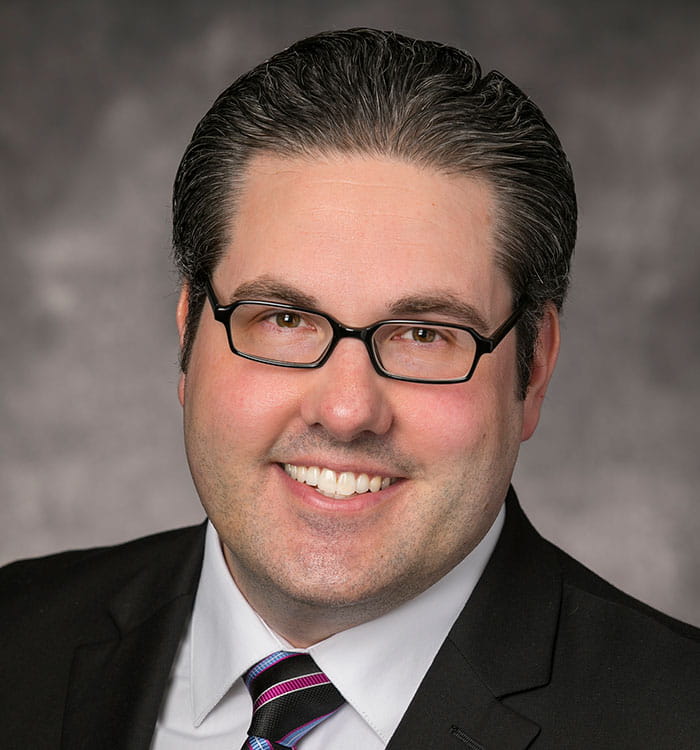Physician Spotlight: Thomas Scheidemantel, MD, UH Psychiatry
May 16, 2021
A Candid Q&A with Dr. Scheidemantel
May 2021
University Hospitals joins the national movement to recognize May as Mental Health Month. We take this opportunity to celebrate the many accomplished mental health providers at UH. Thomas Scheidemantel, MD, is about to start his fifth year as a UH psychiatrist, and Assistant Professor of Psychiatry at Case Western Reserve University School of Medicine. Dr. Scheidemental is also a UH alumni having completed his adult psychiatry residency at University Hospitals. He earned a Bachelor of Science degree from John Carroll University and then worked in two different research and clinical settings for eight years before returning to medical school to earn his MD at Northeast Ohio Medical University (NEOMED) in Rootstown.
 Thomas Scheidemantel, MD
Thomas Scheidemantel, MDQ: Talk about your particular area of focus and what attracted you it.
A: My clinical work is focused in our Adult Intellectual and Developmental Disabilities (Adult IDD) Psychiatry Program here at UH. Our clinic specializes in treating adults with intellectual/developmental disabilities (IDD) and co-occurring psychiatric or behavioral health concerns. I initially got involved with our patient population during my adult psychiatry residency here at UH. I spent a month on an elective rotation with my now-colleague/mentor, Dr. Stephen Ruedrich, and found it to be a great fit for me. In the U.S., there is no recognized sub-specialty in IDD Psychiatry, so I spent a lot of elective time during residency seeking out additional training experiences in genetics, neurology,and complex care programs to get more experience.
Q: Can you talk generally about a patient success story that has given you great joy?
A: When I first started practice, I took over managing the psychiatric treatment of individuals with IDD residing at a state-run residential facility here in Northeast Ohio. A young man who had been living there for three or four years simply had too many psychiatric and behavioral challenges to safely return to living in the community, and many of the staff expressed doubts about whether he could ever be successfully discharged from the institution. His symptoms were all poorly controlled, he was on a long list of medications, and he had significant medication side effects that were affecting his quality of life. After about two years of continuously working with him, our team was able to get his treatment regimen more streamlined, with very few side effects, and his symptoms improved enough that he was able to move back into the community. He has been doing incredibly well there for the past two years and counting.
Q: If someone was interested in going into psychiatry, what advice would you give them?
A: Maintain a sense of humility. Many people find it challenging or intimidating to work with persons with IDD because of an uncertainty about how to act, or what to say or do. As physicians we're conditioned to project confidence and competence at all times, but if you approach this work by recognizing how much you often don't know, you will be amazed at how much you can learn from the person in front of you.
Q: What motivates you and keeps you at UH?
A: I love working with the clients I serve – developing long-term relationships with them and the families and caregivers who support them. Also,I am extremely proud to be a UH physician. Our psychiatry department is really second to none – we have such an amazing group of people working here with a lot of diverse interests and passion for the work they do. There are very few programs like our Adult IDD clinic. To have a department that supports and values the work we do is a great feeling.
You can reach Dr. Scheidemantel at Thomas.Scheidemantel@UHhospitals.org.
Tags: In The Spotlight


